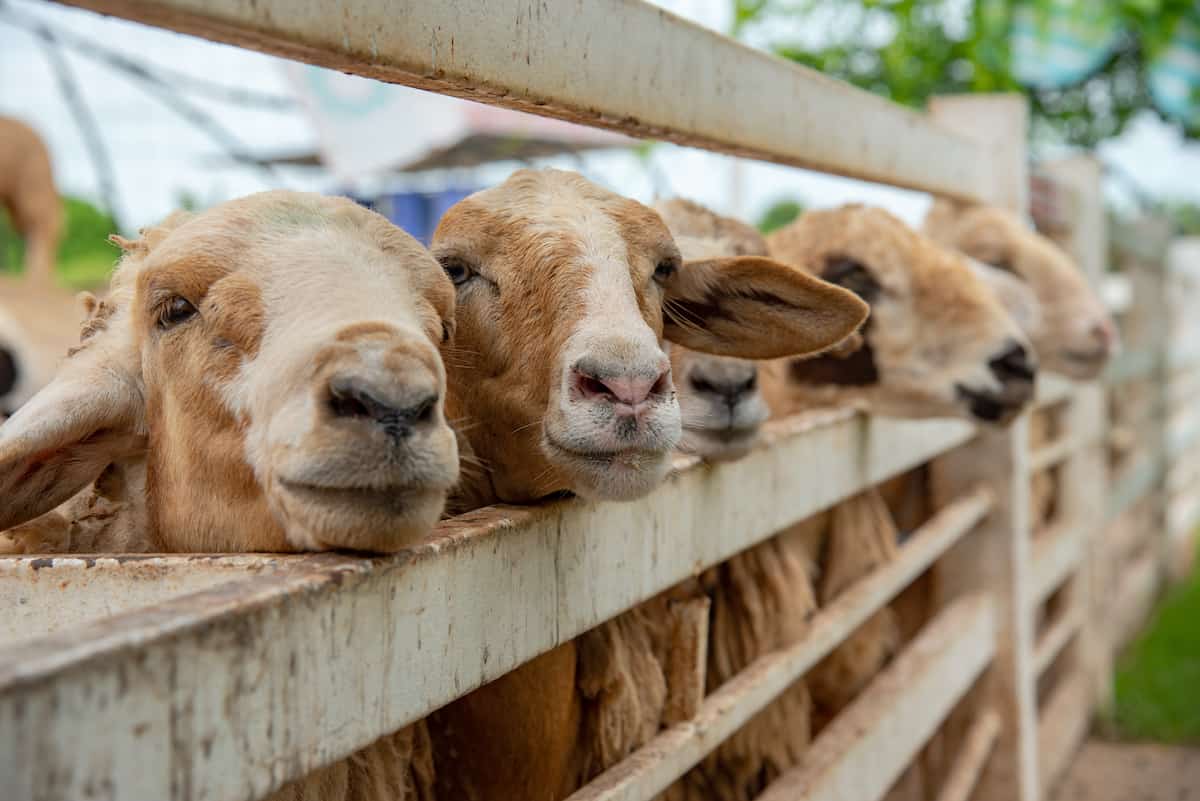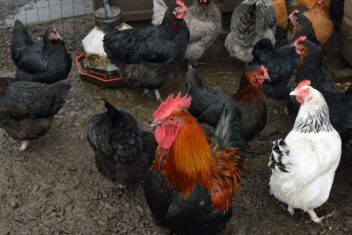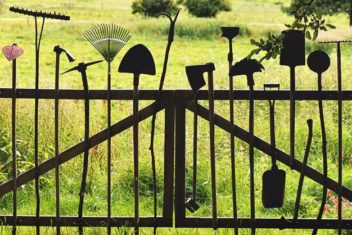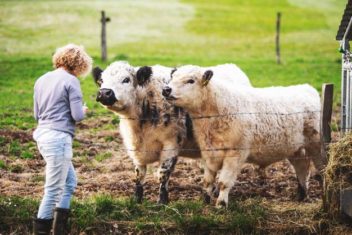“Homesteading is not about hardship. It’s about creating a pleasurable life.”
It often shocks people when I say this. It’s almost as if they want to believe homesteading has to be difficult. Maybe that was true in earlier times without modern amenities like running water, electricity, or the internet.
Today though, you can easily become more self-sufficient while making your life more pleasurable. I call this pleasure-based approach “Epicurean Homesteading”.
What is Epicureanism?

Epicurus was an ancient Greek philosopher who founded a school of thought based on choosing a life of pleasure. Before you get too excited, he didn’t advocate pursuing pleasure without any thought of consequences. In Epicurean philosophy, pleasures that lead to excessive pain aren’t pleasures worth pursuing.
For example, eating a bite of fine quality chocolate daily is a pleasure you can enjoy for the rest of your life (at least I could). Eating a pound of it daily, by contrast, is a very expensive path to long-term illness. So, an Epicurean would choose a daily dose of bite-sized pleasure over a health crisis in the making.
As an Epicurean, you need to look into the future and decide if pleasures enjoyed now are worth the long-term consequences. To help clarify this idea, let’s look at an example of an Epicurean homestead “do” and a “don’t” from my homestead.
Epicurean Ducks
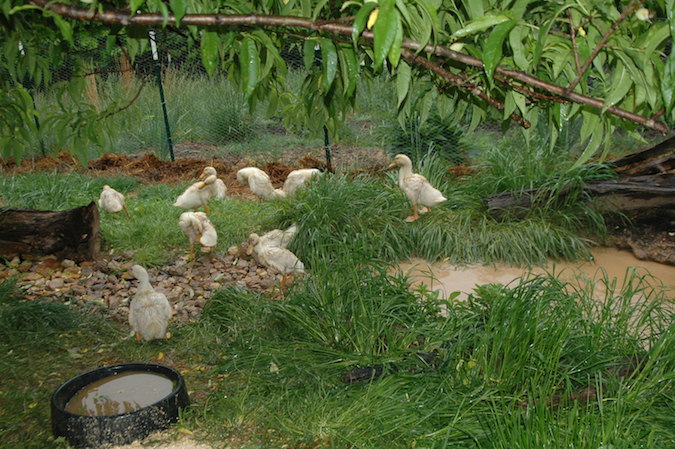
I dreamed of owning ducks for years. So, when I finally got some land, I quickly got seven laying ducks. Our property had a pond that my ducks drank from and foraged around. If predators came near, they escaped into the pond for safety.
Since the ducks followed me everywhere, if I wanted them to eat slugs in the garden or fertilize my fruit trees, I led them to those locations. To get them to stay in an area, I scattered scratch and gave them a bucket of water.
Those ducks gave me plenty of eggs and were lots of fun to watch. They also kept down our insect pest populations and improved our soil. It was as lovely to have ducks as I dreamed it would be.
Anti-Epicurean Ducks
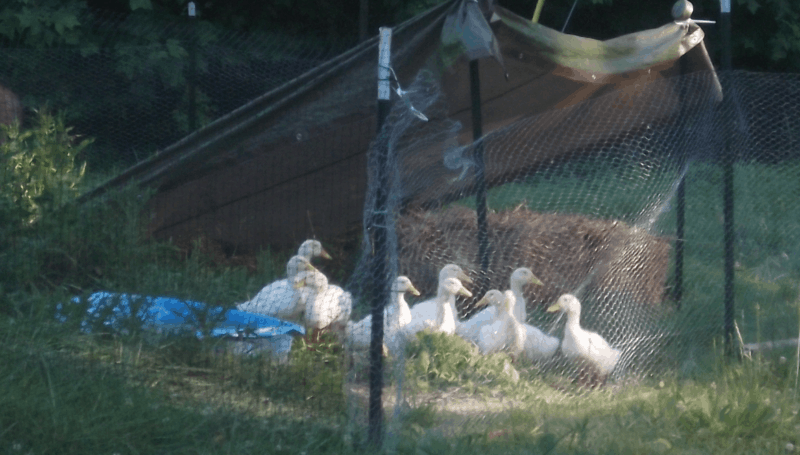
Unfortunately, when I realized how easy and enjoyable it was to raise ducks and how good they were for soil fertility, I got more. I increased my laying flock to 20 regular ducks. Plus, I raised meat ducks 30-50 at a time and processed them.
My costs for duck care went up. To off-set costs, I started selling duck products at the farmers market. Within no time, I’d turned what started as a sustainable joy into an unpleasurable job.
The Epicurean Approach to Homesteading
After that mistake, I scaled back my duck count and decided to become an Epicurean homesteader. That’s when I discovered that the homesteading activities that give me the most pleasure with the fewest cost consequences also take less work, offer more reward, and make me more self-sufficient.
If that’s the kind of homesteader you want to be, let me share a few ideas to help you homestead the Epicurean way.
Tip 1: Do Active Research
Most of us weren’t raised growing our own food, caring for livestock, cooking from scratch, woodworking, making fiber from wool or flax, etc. That means we don’t even know if we like doing all this stuff.
Rather than charge forward with activities you aren’t sure you like, take a class, visit some farms, and talk to people who do the activities you are considering. Ask how much time they spend, how much it costs, what they love, and hate about what they do.
Watching videos and reading blogs online are also helpful. Keep in mind, though, you’ll get the best idea of what an activity will be like where you live if you get a local perspective. That’s because your environmental and climate conditions will play a huge role in whether activities are easy or hard.
– Beekeeping Example
For example, bees are often considered a great gateway to raising livestock. However, in many areas, keeping bees is challenging due to lack of available forage, excessive pesticide use, poor weather conditions, serious bee pest or disease problems, and more.
In places like that, you’ll have to feed bees with sugar water so they can make honey. You’ll need to check your hive regularly for pest infestations and use pesticides. Your chances of losing your bee colonies will also be quite high.
Unless you really love bees, that scenario is simply not going to be pleasurable. Buying bulk honey from a local beekeeper and creating a pollinator plot may be a better way to ensure your honey supply and plant pollination in that case.
Meanwhile, if you’ve got a thriving organic orchard and lots of flowering plants on your land, then your bees have good forage. That’ll keep them healthier and make care easier. You may even be able to raise them in top bars and just harvest a few frames of honey as needed without suiting up and smoking bees into submission to avoid stings.
This is just one example. But nearly every homesteading activity can be easy or hard depending on where and how you choose to do them. So, be specific in your research and find out how best to do these activities where you live.
Tip 2: Be Realistic
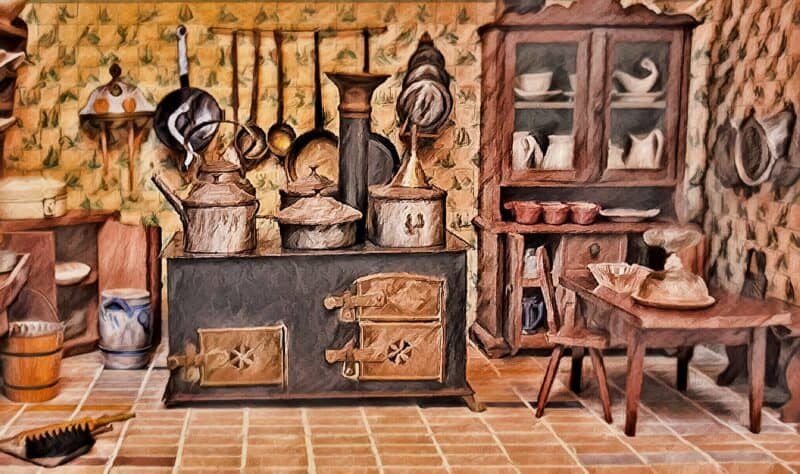
Homesteading is a dream for many of us. The problem with dreams, though, is that sometimes they look a lot like fantasies.
As an example, in my homestead dreams, my simple stone cottage was clean and uncluttered, except for the kitchen which was full of spices, herbs, beautifully canned foods, baskets of vegetables, eggs, hams and garlic braids hanging from rustic rafters.
Yep… my imagined homestead looked remarkably like something staged for Instagram or Pinterest. Frankly, if I had that much stuff in my kitchen, I’d have no room to cook. Plus, if my house was that uncluttered, it would be a seasonal bed and breakfast in Provence not a place to live year-round.
Fact is, if you aren’t a tidy person in the first place, you won’t magically become one when you start homesteading. If you’ve been a night owl your whole life, you won’t suddenly want to wake at 4 am when the rooster crows. If you hate the outdoors, you won’t serendipitously love it just because you started a homestead garden.
As you are deciding how to homestead, be realistic about your own personal rhythms and personality traits. If you are a hoarder, plan storage. Not an early bird? Then install lights in your goat barn so you can milk at night. If bugs and snakes freak you out, garden in a greenhouse or set-up hydroponics in your basement.
You don’t have to live some generic fantasy of homesteading. Make it personal and realistic based on who you are and what you love right this moment.
Tip 3: Prioritize Beauty
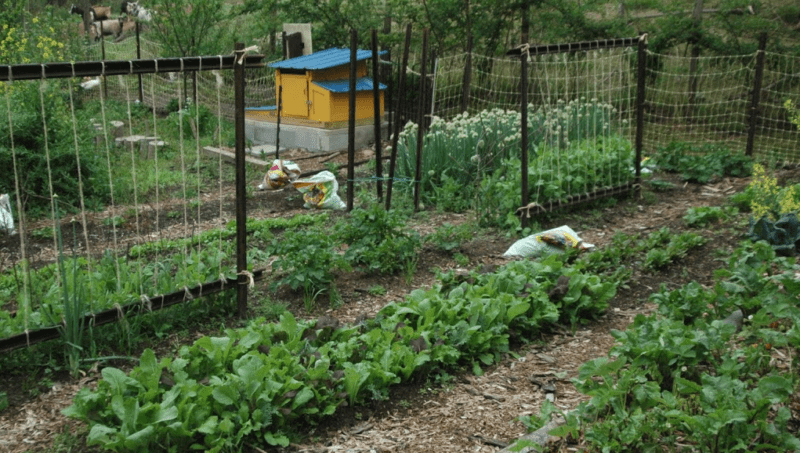
It may seem counterintuitive to focus on making your homestead beautiful rather than just productive. But trust me on this, if you walk out to an ugly scrap wood chicken coop and stare at a dusty or muddy run twice daily, your pleasure in keeping chickens will decline quickly. You’ll dread your work and maybe even give up.
If you instead build a creatively charming coop that you love to visit, your pleasure in keeping chickens will be greatly enhanced. Don’t just think about visual beauty though. Also, try to create routines that fit beautifully in your life.
Maybe set up a café table or bench near your chicken yard so have a place to sit and enjoy all those chicken antics with morning coffee or evening cocktails. Wear an egg apron to collect eggs if it makes you happy or carry a charming basket.
Tip 4: Reduce Work
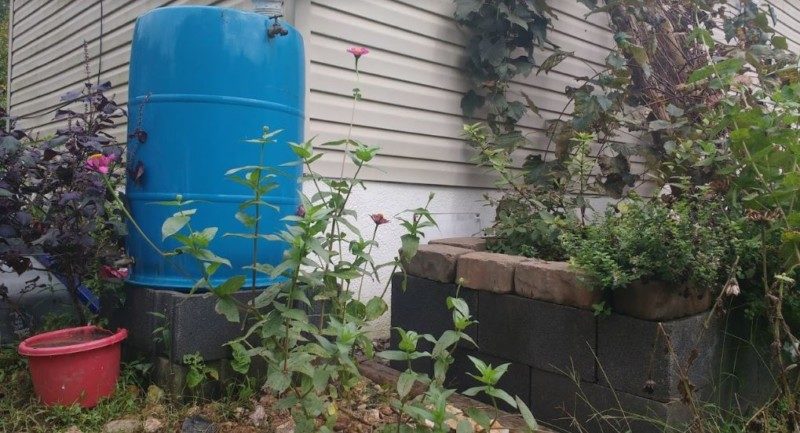
While you are at it, landscape the area around your coop with plants your chickens like to eat. Then, you can easily harvest handfuls of greens and herbs for your chickens when you visit. Include pest favorite plants like grapevines for Japanese beetles and Red Perilla for grasshoppers. That will increase the number of pests flying into the coop and offering extra protein for your layers.
Install rain gutters on your coop to reduce muddy messes in the run. Then, redirect that water to a self-watering system to automate watering and reduce your workload.
Thinking about these kinds of details will not only cut your feed costs, but it will also beautify your landscape and keep chickens happier and healthier with less work on your part.
Tip 5: Be Slow to Spend
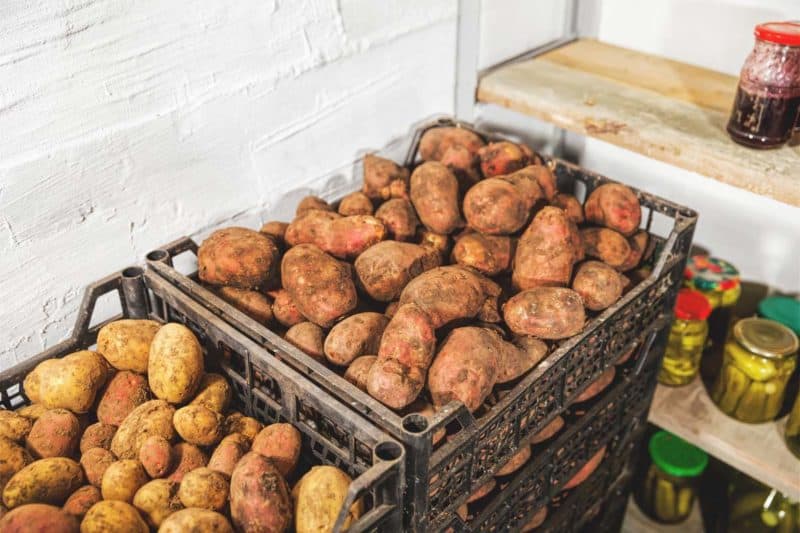
To me, one of the most pleasurable things about homesteading is how much money it saves. Yet, I see so many comments online about how expensive homesteading is. I suspect that’s because some homesteaders are buying tools and taking on activities that may not even be necessary.
When you homestead the Epicurean way, you’ll want to make calculations about how much something costs and how many hours of non-pleasurable work you’ll have to endure to make it happen. Then, you can decide whether that thing is going to give you enough pleasure to compensate for that pain of money loss.
For example, canning is something that many homesteaders swear by. Lots of people spend $300-400 on a pressure canning pot, jars, lids, etc. Then, they spend hours worth of electricity or fuel running their stove and air conditioning cooling their houses to put up cans of food for later use. Some homesteaders even build an outdoor kitchen to do their canning outside instead of heating up the house.
If canning brings you great pleasure, and you love to eat canned food, then that level of expense and effort makes perfect sense. Pressure canning, however, is a relatively modern invention that is only self-sufficient after you buy all your equipment, and if you use a fuel source you can harvest yourself.
There are other less costly and less time-consuming ways of having a year-round food supply. Personally, I love to garden and I don’t like the texture of most canned foods. So, I eat mainly what I harvest fresh from the garden. Then, I use low to no cost storage methods such as fermentation, dehydration, and dry storage (e.g. potatoes) to store my extras for the slow months.
You can often save money and increase pleasure by spending a little time to find less expensive ways to get started.
Tip 6: Come to Your Senses
Epicureanism is about the pursuit of pleasure. Most of our pleasure is derived from our senses of taste, smell, sight, touch, and sound. So, don’t forget to think about all five senses when planning epicurean homestead activities.
– Avoid Sense Offenders
For example, the smell of gasoline makes me sick. So, I do all my mowing with a beautiful Austrian scythe and battery-operated weed trimmer. These tools are easy and inexpensive to use and make mowing much more comfortable for me.
– Satiate Your Senses
Also, instead of growing a grass lawn that irritates my allergies, I grow large swathes of various mints, spices, and wildflowers. Plus, I grow mostly self-maintaining food forests full of fruits, culinary and medicinal herbs, and self-sowing vegetables. I also have a few cultivated garden areas where I grow annual vegetables and herbs that require more care.
By varying my landscape between meadows of mint, food forests, fenced gardens, and more it makes things more visibly beautiful to view. Those various spaces also produce lovely fragrances for most of the year. Plus, they support our large population of beautiful pollinators, songbirds, frogs, and singing insects to create a lush soundscape for our homestead life.
Of course, I also harvest lots of amazing foods that not only taste great but are also wonderful to touch. Harvesting soft apple mint for an herbal infusion, mullein to make into tea, or a warm tomato to top off a salad is pure, tactile pleasure.
Enjoy the Pleasures of Life as an Epicurean Homesteader
Homesteading is an activity that really lends itself to engaging all your senses. So, think beyond your eyes and aim to satiate all your senses as you choose your activities and establish your routines, and become an Epicurean Homesteader too.
